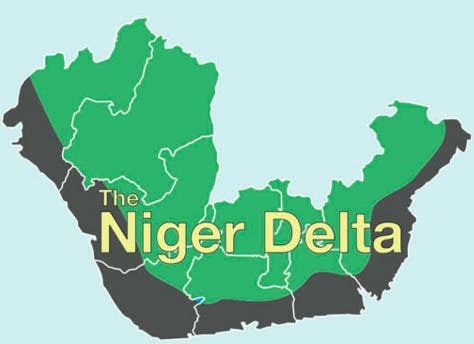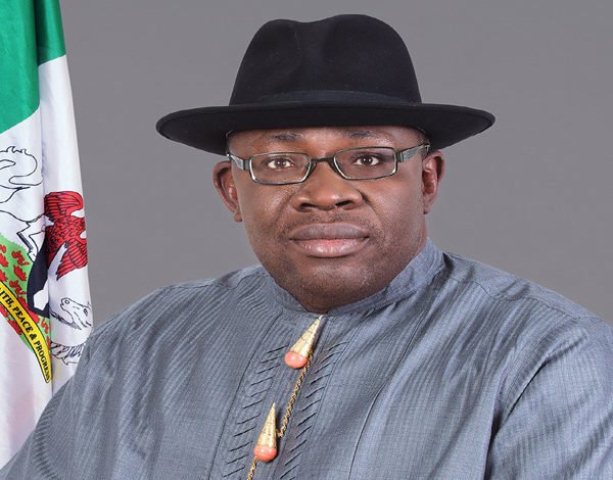Nigeria is really 62 years old, but where is the Niger Delta?
BY JESSICA EKON-AMIEYEGBA FEKE
In Nigeria, crude oil was first discovered in commercial quantity in the year 1956, at Oloibiri in the present day Bayelsa state. Nigeria on her part gained independence from the British Colonial masters on the 1st of October, 1960. The nation was organized into a regional system of administrations based primarily on ethnic consideration at the time of independence. However, conflicts over the distribution of resources, particularly the money coming in from the oil business, set the stage for mutual suspicion among the Federating units.
People’s rights are rarely protected and regularly violated in the Niger Delta. Many people in the area have extremely poor living conditions.
The region’s reserve of oil, gas and other natural resources is huge. and this inequality is maintained by the “resource curse,” which is a result of poor governance and resource richness. The oil and gas business operates below international standards because of the wealth from natural resources and the lack of effective governance, which allows individuals in positions of political and other influence to profit disproportionately from oil money. There have been numerous historic oil spills that have never been cleaned up, which has had negative effects on local livelihoods, local health, and contaminated crops and fisheries.
With a sizable portion of the population living below the poverty line, the Niger Delta region has long been known for its pervasive poverty. This has gotten worse recently as more residents suffer with it and graduates are being left without jobs. The low level of industrialization is largely to blame for the widespread poverty. The actions of transnational corporations, which have harmed the traditional economies of subsistence farming and fishing, have made this more challenging.
The current transportation system is insufficient and frequently hindered by a bad road system and harsh weather, especially in coastal areas. In many downstream areas, there is virtually any electricity available, and there is a severe lack of telecommunications infrastructure.
Healthcare is substandard while in the educational area such as schools and different institutions; are ill-equipped and as a result, they more closely resemble factories for producing restless youth. The bad state of waste management culture is made worse by the actions of the oil industry. Social unrest, violence, and instability flourish in these challenging circumstances.
It is detrimental to the Niger Delta communities’ basic existence to exclude them from the governance and administration of both upstream and downstream procedures of the oil sector. Using the example of those local communities whose lands oil is exploited, have literally been dispossessed of their rights to their territory and the oil produced from it. Even though it is the local communities and residents who directly suffer from oil spills, gas flaring, acid rain, and other forms of environmental degradation and pollution, indigenous people of the Niger Delta rarely benefit from the distribution of Oil Prospecting Licenses and are entirely excluded from crude oil sales.
From facts gathered, “Militants targeted oil pipelines and abducted foreign oil workers for ransom amid the broader environment of underdevelopment, massive oil pollution, a lack of viable livelihood options, and a government that was largely unresponsive. This militancy had a significant impact on oil output, causing oil prices to surpass $100 per barrel for the first time ever. To avert a resurgence of militancy, the government oversaw an amnesty procedure in 2009 in which over 26,000 militants accepted a ceasefire and received compensation and opportunities.”
Accordingly, the Presidential Amnesty Programme began in 2010 when the militancy under Tompolo decided to surrender. At that time, they requested a favor from the federal government, which existed prior to the amnesty program. Today, the program is still in operation, and there is some peace and stability, but this is fragile because the initial factors that led to the militancy were not fully addressed.
Additionally, there is no clear exit strategy for this incredibly costly program. By sending amnesty students from the Niger Delta or, more precisely, the south-south region to school, providing for their needs, and providing them with allowance, the federal government has been supporting the requirements of these children.
Regardless of the cessation of militancy, the Niger Delta still has daily insecurity due to cultism, piracy, dishonest security personnel, and undermining business output. However, the decline in militancy has made room for a thriving civil society to emerge and for organizations to enter the Niger Delta to promote a more lasting peace, economic variety and political stability in the region.
The Niger Delta, however, still needs a lot of work done because there are a lot of projects under construction, most of which are in the creeks. As a result, the current state of the area isn’t exactly cause for rejoicing.
Feke, an intern at GbaramatuVoice Newspaper, is a 300 level Mass Communication student at the Nile University of Nigeria, Abuja.
Support Quality Journalism in the Niger Delta Region
Join us in our mission to bring development journalism, cultural preservation, and environmental awareness to the forefront. Your contribution makes a difference in the lives of the people of the Niger Delta. Donate today and be a part of the change!








